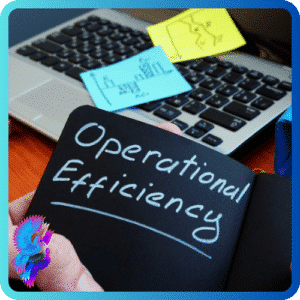Advertisements
Operation effectiveness
Maximizing Efficiency and Achieving Organizational Success
Introduction:
Operation effectiveness is a critical concept in organizational management, representing the degree to which an organization efficiently utilizes its resources to achieve its goals and objectives. It involves optimizing processes, managing resources, and enhancing overall efficiency.
This essay explores the multifaceted nature of operation effectiveness, examining its key components, methodologies, and the profound impact it has on organizational success.
-
- Key Components of Operation Effectiveness:
-
- Efficient Processes:
Efficient processes are at the core of operational effectiveness. Organizations must streamline workflows, eliminate unnecessary steps, and enhance the overall efficiency of their operational processes.
This includes production, service delivery, and internal workflows.
-
- Resource Utilization:
Effective operation management involves optimizing the use of resources, including financial, human, and technological assets.
Maximizing resource utilization ensures the organization achieves its goals without unnecessary costs or waste.
-
- Quality Control:
Quality control is an integral component of operational effectiveness. Ensuring the consistency and high quality of products or services is crucial for meeting customer expectations and building a positive reputation in the market.
-
- Technology Integration:
Embracing technology and integrating it into operational processes is essential for operational effectiveness.
This includes adopting advanced tools, automation, and digital solutions to improve efficiency and stay competitive in a rapidly evolving business landscape.
-
- Continuous Improvement:
Operation effectiveness requires a commitment to continuous improvement.
Organizations must regularly assess their processes, identify areas for enhancement, and implement changes to adapt to changing market conditions and evolving customer needs.
-
- Methodologies for Operation Effectiveness:
-
- Lean Management:
Lean management focuses on minimizing waste and maximizing efficiency.
It involves identifying and eliminating non-value-added activities, optimizing workflows, and creating a culture of continuous improvement.
-
- Six Sigma:
Six Sigma is a data-driven methodology that aims to reduce process defects and variations.
It emphasizes statistical analysis and problem-solving techniques to achieve higher levels of quality and consistency.
-
- Total Quality Management (TQM):
TQM is a holistic approach to quality management that involves continuous improvement at every level of the organization.
It emphasizes customer satisfaction, employee involvement, and a commitment to excellence.
-
- Agile Operations:
In modern business, agile operations involve flexible and adaptive approaches to meet rapidly changing market conditions.
It emphasizes responsiveness, collaboration, and iterative decision-making.
-
- Business Process Reengineering (BPR):
BPR involves radically redesigning core business processes to achieve dramatic performance improvements.
It often includes the adoption of new technologies, organizational restructuring, and a focus on customer needs.
-
- The Impact of Operation Effectiveness on Organizational Success
-
- Cost Efficiency:
Efficient operations lead to cost reduction by minimizing waste and optimizing resource utilization.
This contributes to improved profitability and financial sustainability, key components of organizational success.
-
- Increased Productivity:
Well-managed operations result in increased productivity by optimizing workflows, reducing downtime, and improving the utilization of resources.
This, in turn, leads to higher output and efficiency.
-
- Enhanced customer satisfaction:
Operation effectiveness directly impacts customer satisfaction. Efficient processes, high-quality products or services, and timely delivery contribute to positive customer experiences, fostering loyalty and repeat business.
-
- Competitive Advantage:
Organizations that excel in operation effectiveness gain a competitive advantage.
The ability to produce high-quality products or services at lower costs and faster speeds positions a company favorably in the market.
-
- Adaptability to Change:
Operation effectiveness facilitates adaptability to change. Organizations with streamlined processes and agile operations can quickly adjust to changing market conditions, emerging technologies, and evolving customer preferences.
-
- Case Studies:
-
- Amazon:
Amazon’s highly efficient and technologically advanced operations contribute to its success.
The company utilizes sophisticated logistics and automation to streamline its supply chain and delivery processes.
-
- Toyota:
Operation Effectiveness: Toyota’s renowned production system is a testament to operation effectiveness.
The company emphasizes lean manufacturing principles, continuous improvement, and efficient resource utilization, enabling it to produce scale-quality vehicles.
-
- Conclusion:
In conclusion, operation effectiveness is a cornerstone of organizational success, influencing various facets of business operations.
Organizations can enhance productivity, reduce costs, and achieve a competitive advantage by optimizing processes, managing resources efficiently, and embracing continuous improvement.
The impact of operation effectiveness extends beyond internal operations, shaping customer experiences, building brand reputation, and contributing to long-term sustainability. Recognizing the importance of operation effectiveness and implementing strategies to enhance it is crucial for organizations seeking to thrive in today’s dynamic and competitive business environment.
Advertisements


























